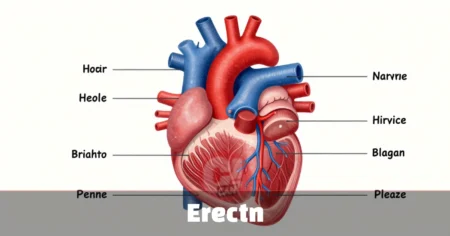I used to think healthy living meant following complicated diet plans and spending hours at the gym.
Then I realized something simple: the best health tips guide for better living isn’t about perfection.
It’s about small, consistent changes that actually stick.
After years of trial and error, I’ve learned that sustainable wellness comes from understanding what your body needs and giving it exactly that.
Why Most Health Advice Falls Short
Let me be honest with you.
Most health guides overwhelm you with information you’ll never use.
They promise quick fixes that don’t work long-term.
I’ve seen people jump from one extreme diet to another, burning out within weeks.
The real secret is building habits that feel natural, not forced.
The Foundation: Understanding Your Body’s Basic Needs
Your body has four non-negotiable requirements that form the cornerstone of any effective health tips guide.
Proper nutrition fuels every cell in your body.
Regular movement keeps your systems functioning optimally.
Quality sleep allows your body to repair and restore itself.
Stress management prevents your hormones from wreaking havoc on your health.
When I focus on these four pillars, everything else falls into place naturally.
Nutrition That Actually Works
Start With What You Drink
I learned this the hard way: what you drink matters more than most people realize.
Sugary drinks are the fastest way to derail your health goals.
They spike your blood sugar, increase diabetes risk, and contribute to weight gain.
My go-to replacements became water, unsweetened tea, and black coffee.
The change in my energy levels was noticeable within days.
The Power of Whole Foods
Ultra-processed foods dominated my diet for years.
I didn’t realize how much they were affecting my mood and energy.
When I switched to whole foods like fruits, vegetables, lean proteins, and whole grains, my cravings changed completely.
These foods are naturally more filling and provide steady energy throughout the day.
Protein: Your Secret Weapon
Getting enough protein transformed how I felt between meals.
It keeps you full longer, supports muscle maintenance, and boosts your metabolism.
I aim for protein at every meal: eggs for breakfast, chicken or fish for lunch, and legumes or lean meat for dinner.
This simple change eliminated my afternoon energy crashes.
Healthy Fats Matter
Don’t fear fats – embrace the right ones.
Extra virgin olive oil, nuts, seeds, and fatty fish like salmon provide essential nutrients your body craves.
These fats support brain health, reduce inflammation, and help you absorb vitamins.
I drizzle olive oil on salads and snack on almonds without guilt.
Movement for Real Life
Exercise Doesn’t Mean Torture
I used to believe exercise had to be intense to be effective.
That mindset kept me sedentary for years.
The truth is simpler: 150 minutes of moderate activity per week changes everything.
This breaks down to just 20 minutes daily.
Walking, dancing, gardening, or playing with kids all count.
Strength Training Simplified
You don’t need a gym membership to build strength.
Bodyweight exercises like push-ups, squats, and planks work incredibly well.
I do a 15-minute strength routine twice a week using nothing but my living room floor.
This maintains muscle mass and keeps my metabolism healthy.
Make Movement Natural
The best exercise is the kind you’ll actually do consistently.
I take stairs instead of elevators.
I park farther away from store entrances.
I have walking meetings when possible.
These small choices add up to significant health benefits over time.
Sleep: Your Recovery Superpower
Why Sleep Quality Trumps Everything
Poor sleep sabotages every other health effort you make.
It disrupts hunger hormones, weakens your immune system, and impairs decision-making.
I learned that 7-9 hours of quality sleep isn’t optional – it’s essential.
Creating Your Sleep Sanctuary
Your bedroom environment directly impacts sleep quality.
I keep my room cool, dark, and quiet.
Blue light from screens disrupts melatonin production, so I avoid devices for an hour before bed.
This simple change improved my sleep depth dramatically.
Consistent Sleep Schedule
Going to bed and waking up at the same time trains your internal clock.
Even on weekends, I stick to my schedule within an hour.
This consistency makes falling asleep and waking up much easier.
Hydration: The Often Overlooked Essential
Most people walk around mildly dehydrated without realizing it.
Proper hydration supports every bodily function from digestion to temperature regulation.
I keep a water bottle nearby and drink throughout the day rather than waiting until I’m thirsty.
The general rule is simple: if your urine is pale yellow, you’re well-hydrated.
Stress Management: Your Health Insurance Policy
Understanding Stress Impact
Chronic stress literally changes your body chemistry.
It increases cortisol levels, promotes belly fat storage, and weakens your immune system.
I had to learn that managing stress isn’t selfish – it’s necessary for optimal health.
Simple Stress-Busting Techniques
Meditation doesn’t require hours of sitting cross-legged.
Even 5 minutes of deep breathing makes a difference.
I use meditation apps during my commute or before bed.
Regular practice has lowered my blood pressure and improved my mood noticeably.
The Social Connection Factor
Strong relationships are literally life-extending.
People with close social ties live longer and have better health outcomes.
I prioritize time with family and friends, even when life gets busy.
These connections provide emotional support that no supplement can replace.
Preventive Care: Your Health Investment
Regular Check-ups Save Lives
I used to skip doctor visits unless something was obviously wrong.
This was a mistake.
Regular health screenings catch problems early when they’re most treatable.
Blood pressure, cholesterol, and blood sugar checks are simple but powerful tools.
Know Your Numbers
Understanding your baseline health metrics helps you track progress.
I keep a simple record of my blood pressure, weight, and energy levels.
This data helps me and my doctor make informed decisions about my health.
Debunking Common Health Myths
Myth: Eggs Raise Cholesterol
This outdated belief keeps people from enjoying nutritious whole eggs.
Research shows eggs have minimal impact on blood cholesterol for most people.
They’re packed with protein and essential nutrients.
I eat eggs regularly without worrying about my cholesterol levels.
Myth: All Fats Are Bad
The fat-free craze of the 90s did more harm than good.
Your body needs healthy fats to function properly.
Trans fats are the real villains, not natural fats from whole foods.
I focus on avoiding processed foods rather than eliminating all fats.
Myth: Carbs Are Evil
Refined carbs deserve their bad reputation, but not all carbs are created equal.
Whole grains, fruits, and vegetables provide essential nutrients and fiber.
The key is choosing unprocessed carbohydrate sources over refined ones.
Building Your Daily Health Routine
Morning Habits That Matter
I start each day with a glass of water to rehydrate after sleep.
A protein-rich breakfast stabilizes my blood sugar and energy levels.
Ten minutes of movement, even just stretching, wakes up my body and mind.
Midday Energy Boosters
Instead of reaching for sugary snacks, I eat nuts or fruit for sustained energy.
A short walk after lunch improves digestion and afternoon focus.
Staying hydrated prevents the 3 PM energy crash that used to derail my productivity.
Evening Wind-Down
I avoid large meals close to bedtime to improve sleep quality.
Dimming lights an hour before bed signals my body to produce melatonin.
A few minutes of reflection or gratitude practice calms my mind for better sleep.
Special Considerations for Long-Term Success
Listen to Your Body
The best health tips guide adapts to your individual needs.
What works for others might not work for you, and that’s perfectly normal.
I pay attention to how different foods and activities make me feel.
This self-awareness guides my choices better than any external rules.
Progress Over Perfection
I used to give up after one “bad” day.
Now I understand that consistency over time matters more than perfect days.
Sustainable changes happen gradually, not overnight.
Each small improvement compounds into significant health benefits.
Addressing Individual Challenges
Everyone faces unique obstacles to healthy living.
Time constraints, budget limitations, and health conditions require personalized approaches.
I’ve learned to work with my circumstances rather than against them.
The Science Behind Simple Changes
Why Small Changes Work
Your brain adapts more easily to gradual modifications than dramatic overhauls.
Habit formation research shows that tiny changes become automatic behaviors more quickly.
I’ve experienced this firsthand: adding one healthy habit at a time creates lasting transformation.
The Compound Effect
Health improvements build on each other in powerful ways.
Better sleep improves food choices.
Regular exercise enhances sleep quality.
Good nutrition supports mental clarity for better decision-making.
This positive cycle becomes self-reinforcing over time.
Practical Implementation Strategies
Week One: Foundation Building
Focus solely on hydration and sleep schedule.
These two changes set you up for success in other areas.
Don’t try to overhaul everything at once.
Week Two: Add Movement
Incorporate 10-15 minutes of daily activity.
This could be walking, stretching, or dancing to your favorite music.
The goal is consistency, not intensity.
Week Three: Upgrade Nutrition
Replace one processed food with a whole food alternative.
Swap sugary drinks for water or herbal tea.
Add one serving of vegetables to your daily routine.
Week Four: Stress Management
Introduce 5 minutes of daily stress relief.
This might be deep breathing, meditation, or journaling.
Find what resonates with you personally.
My Final Verdict on Health Tips for Better Living
The most effective health tips guide for better living isn’t about following someone else’s perfect plan.
It’s about understanding fundamental principles and adapting them to your unique life.
I’ve learned that sustainable health comes from consistent small actions, not dramatic transformations.
The tips I’ve shared aren’t revolutionary, but they’re proven and practical.
Frequently Asked Questions
What is the most important health tip for beginners?
Start with hydration and sleep.
These two factors affect every other aspect of your health.
Once you’re drinking enough water and getting quality sleep, other healthy choices become much easier to maintain.
How long does it take to see results from healthy lifestyle changes?
Most people notice increased energy within 1-2 weeks.
Physical changes like weight loss or improved fitness typically take 4-6 weeks.
Long-term benefits like reduced disease risk develop over months and years of consistent habits.
Can I improve my health without expensive supplements or gym memberships?
Absolutely.
The most powerful health improvements come from free or low-cost changes: drinking water, walking, eating whole foods, and getting adequate sleep.
These fundamentals outweigh any expensive supplements or equipment.
What’s the biggest mistake people make when trying to get healthier?
Trying to change everything at once.
This leads to overwhelm and eventual abandonment of healthy habits.
Focus on one small change at a time until it becomes automatic, then add another.
How do I stay motivated when progress feels slow?
Track non-scale victories like energy levels, sleep quality, and mood improvements.
Remember that sustainable health is a lifelong journey, not a quick destination.
Celebrate small wins and focus on how you feel rather than just how you look.
Is it possible to be healthy with a busy lifestyle?
Yes, but it requires strategic planning.
Prepare healthy snacks in advance, use short workout videos, and prioritize sleep as non-negotiable.
Many health tips can be integrated into your existing routine without adding extra time to your day.







